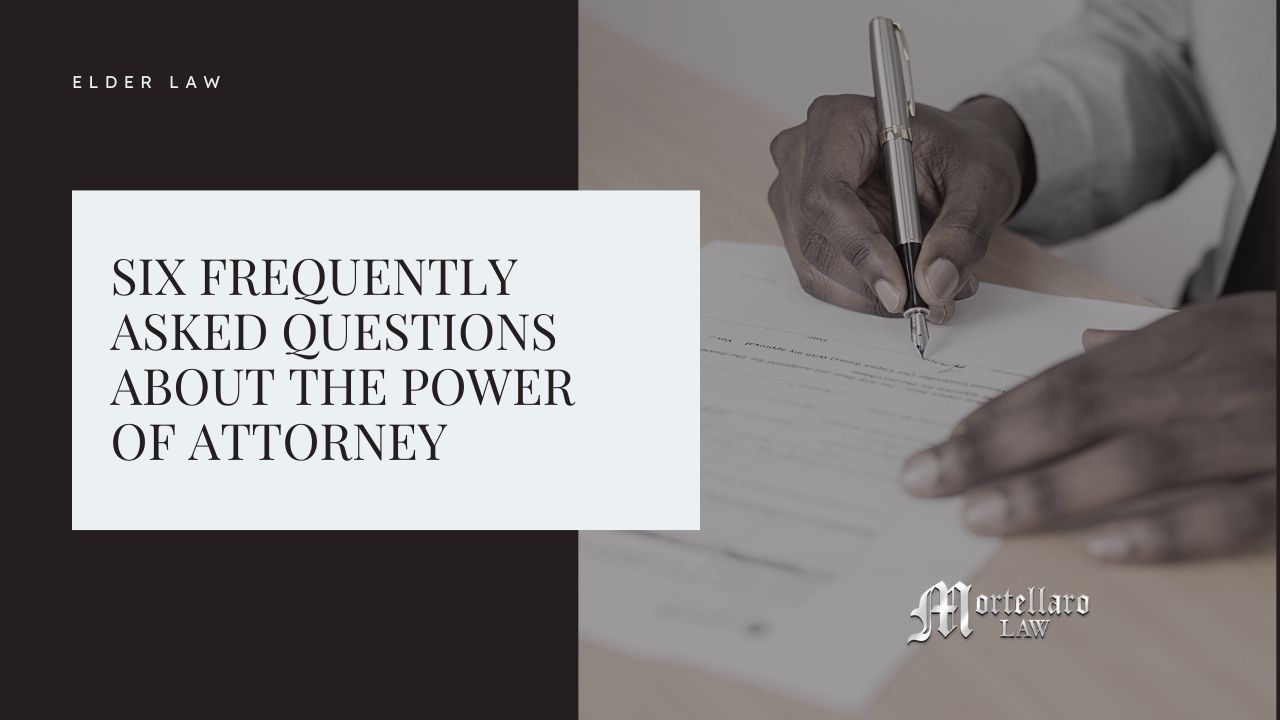The power of attorney is an important legal document that gives an individual flexibility in handling his or her legal and financial affairs. You may want to give another person the power to make decisions and to sign documents on your behalf. Or perhaps your elderly parent wants to give you authority to take financial or legal actions for them. In these situations, a power of attorney comes in handy. Here are six frequently asked questions about the power of attorney.
1. What is a Power of Attorney?
A power of attorney, sometimes referred to as a “POA,” is a legal document that allows one person, the principal, to grant authority to another person, the agent, to take legal actions on behalf of the principal. You can grant a power of attorney for various needs, and you should know the different types available.
2. What are the Types of Power of Attorney?
The state of Florida allows an individual to grant several different types of powers of attorney.
- Limited or Special. You may execute a limited or special power of attorney if you have a specific action or set of actions that you want someone to take for you. Suppose you want someone to make a specific purchase for you, like buying a house, and you aren’t available for the closing. Or maybe you will be out of town for a period and want someone to be able to access your bank accounts. In a limited power of attorney, you can precisely specify the powers you want to grant and for how long you want to grant them.
- General. A general power of attorney gives your agent broad powers to act, to make all legal and financial decisions for you, while the documents is in effect.
- Durable. If you want your power of attorney to remain effective in case you become incapacitated, you must make it a durable power of attorney. Either a limited power of attorney or a general power of attorney can be made durable with specific text designated by the state of Florida. If you do not include the durable power of attorney text, the grant of authority will expire upon your incapacitation.
If you are seeking to grant an individual the power to make medical decisions on your behalf, you will want to make a designation of a health care surrogate. This document is distinct from a power of attorney.
3. When Should Someone Obtain a Power of Attorney?
One of the requirements of executing a power of attorney is that the principal has capacity. That means the person signing the document is mentally aware and generally knows what he or she is doing by signing. Because of the capacity requirement, it is important that if you are seeking to get a power of attorney for an elderly parent, you do so before your parent experiences a mentally debilitating disorder. It’s much harder to verify that the principal has capacity if he or she has dementia, for example. However even in that case, if the person has moments of clarity and lucid thought, you may get his or her physician to attest to her capacity to sign.
When you want to obtain a power of attorney for a specific purpose, you can seek to execute the document when the need arises. A court does not need to sign off on the document, so as long as you have access to two witnesses and can get the document notarized, the power of attorney will be effective once it is validly executed.
4. How Do I Designate a Power of Attorney?
Designating a power of attorney requires abiding by the Florida state law requirements. Florida requires that the person granting the agency, the principal, signs the document in the presence of two witnesses and before a notary.
5. How Can I Revoke a Power of Attorney
If you are the principal, you can revoke your power of attorney by clearly stating so in a subsequent power of attorney, or you can separately sign a revocation of a power of attorney. However, if you sign a second power of attorney without stating that you revoke the first, the first power of attorney will still be valid.
6. Do I Need an Attorney to Draft a Power of Attorney?
We highly recommend that you consult an attorney to ensure that you comply with all applicable laws in executing this very important document. While an attorney is not technically not required, it is ill-advised as you could miss a critical provision of the law and end up with an ineffective grant of authority. For example, Florida requires that in order to grant certain powers, like the power for an agent to create or change a beneficiary designation, the power of attorney includes a separate signed enumeration for that specific power.
For a free consultation regarding your needs for a power of attorney, contact our experienced attorneys at Mortellaro Law.






